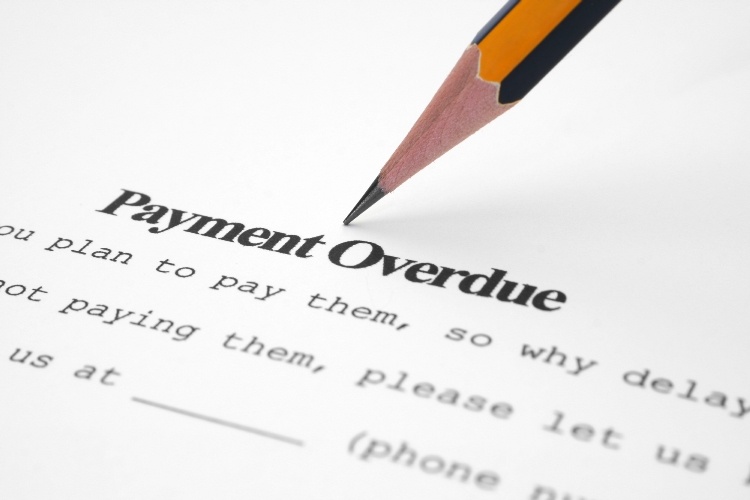It’s become something of an accepted `norm` that most businesses pay late. Invoices are received, popped to one side, reminders are sent, and it is not until days, if not weeks after the agreed payment term deadline, or a third-party agent becomes involved that payment is received.
However, what we don’t know throughout all of this is `why.` Why are businesses slowing down payment or paying late?
At directroute.co.uk, we work with clients to collect outstanding invoices and ensure the right processes and procedures are in place from the beginning to encourage prompt payment at all times.
As many businesses are aware, late payment is hugely detrimental for business, negatively affecting cash flow, business growth, and profits!
On a larger scale, it can also negatively affect the UK economy.
This is why better payment practices must be implemented, fighting the late payment culture, changing the correlation and dynamics between big businesses paying their small partners/suppliers.
To help, the government is pushing the reporting of payment practices by big businesses, where those businesses over three years old and who report a turnover over £36 million must report their payment practices. For example, outlining the time it takes to pay invoices, the percentage of invoices paid within specific time frames, and the percentage of invoices paid late.
Payment terms and policies can also be reported on, outlining these practices too.
However, the question remains…do companies have poor payment practices on purpose or is it because they have inadequate credit control processes and procedures in place?
Dealing with a late payment culture
Reports show that late payments cost small businesses an estimated £13 billion per year, harming productivity and business growth.
Reports from the Federation of Small Business also state that approximately 80% of SMEs are paid late, with 5.7 million businesses owed an average of £6,142!
With large companies extending their credit terms affecting 37% of small businesses’ cash flow, it is thought that 30% of these companies will be using an overdraft to support their operations, with a further 20% experiencing a slowdown in profits.
Effect of late payment
Late payments can turn into bad debts – making it difficult to pay your employees, manage cash flow, and it can cause problems securing credit.
Restricts growth – time is spent on credit control and collections rather than the company’s long-term growth.
Can increase reliance on overdraft use and short-term borrowing – leading to higher interest being paid.
It also wastes a lot of business time chasing those overdue invoices. In fact, three days, on average, every month are spent chasing unpaid invoices. Wasting man-hours, hours that could be better spent elsewhere, growing the business, and improving processes, services, products, etc.
Reasons for late payment
It’s true that the more a company grows and develops, the more complicated its payment processes become. It can be more challenging to find your dedicated account manager to ensure payments are complete, and ultimately, invoices can move slowly through the entire finance process.
Often big businesses can hide or misrepresent late payment by extending their standard terms. However, suppliers still have to wait a considerable length of time with invoices remaining unpaid.
Currently, late payment legislation states that maximum payment terms should be 60 days (although this is to be lowered to 30 for businesses with less than 50 employees) unless there is a justifiable reason.
Note: Longer terms must be agreed upon in advance and fair to both businesses.
Making invoice collection easy
Streamlining and investing in automated accounts payable processes can and should be an essential part of any business’s credit control. For example, with the right processes, you can raise purchase orders allowing for invoices to be authorised before they’re even submitted and received.
Automated communications can also support processes where you can automatically upload invoices, match them to purchase orders, reduce errors, and remove the need for manual data entry.
Introduce a late payment charge. Late payment penalties such as adding interest and even compensation can help to affect change. Compensation and interest can be added every time an invoice is paid late. It is not about penalising businesses but rather encouraging them to break the late payment cycle, realising that it is financially beneficial to pay suppliers on time rather than risk additional fees.
Work with a professional commercial debt collection agency. Professional debt collectors have the knowledge and the experience to collect on unpaid invoices quickly and effectively. Maintaining business relationships and working as an extension of your team implementing processes and procedures that work for you.
We help tackle the late payment culture through our debt collection practices, breaking the chain, supporting cash flow, and helping to get the economy back on track.
We help businesses not only avoid bad payers but collect outstanding invoices. Thus, speeding up payments received and boosting a business’s cash flow and profit margins.
If you liked Direct Route to provide additional information about our commercial debt collection services, call us on 0330 229 1991 or drop us an email at memberbenefits@directroute.co.uk.
